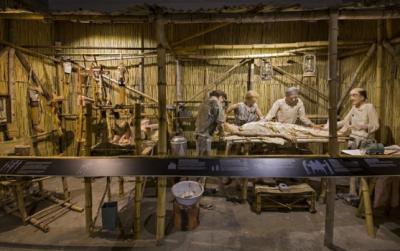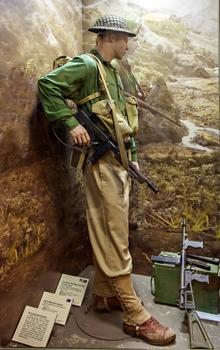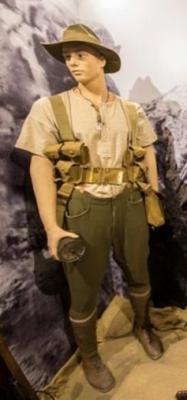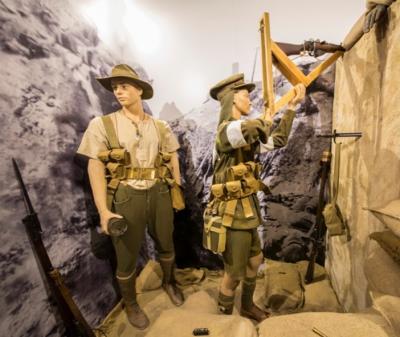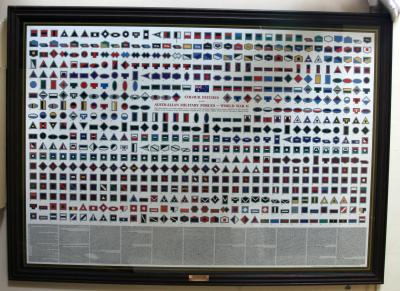Diorama - World War 1, Prelude to The 100 Days, 1918
1:1 scale diorama showing a Lewis gunner of 44th Battalion, 11th Brigade, 3rd Division, Australian Imperial Force in May 1918. This diorama is the introductory feature in the World War 1 Gallery - 1918 experience. The figure shows details of the Lewis gun and webbing including the documented but irregular positioning of the entrenching tool.
The diorama text discusses the transition from manpower to firepower with the restructure of infantry battalions to incorporate more light machine guns and to give the platoon an all round versus specialist capability. The increase in firepower and the reduction to three from four battalions in an infantry regiment in part offset the decline in voluntary recruitment. The offensive capabilities of an infantry battalion was therefore generally maintained but with 700 men instead of 1100 when fully manned .
Details
Details
The Lewis was a World War One–era light machine gun. Designed in the United States, the design was finalised and mass-produced in the United Kingdom by BSA . The weapon was widely used by troops of the British Empire during the war. It had a distinctive barrel cooling shroud (containing a finned, aluminium breech-to-muzzle heat sink to cool the gun barrel) and top-mounted pan magazine.,
The gun's cyclic rate of fire was about 500–600 rounds per minute. As the War progressed the addtion of Lewis guns iallowed the size of infantry sections to be reduced without any loss of firepower. The Lewis gun used a pan magazine holding 47 or 97 rounds. Pan magazines hold the ammunition nose-inwards toward the center, in a radial fan. Unlike the more common drum magazines, which hold the rounds parallel to the axis and are fed by spring tension, pan magazines are mechanically indexed.
Australian Army Museum of Western Australia
Australian Army Museum of Western Australia
More items like this
Other items from Australian Army Museum of Western Australia
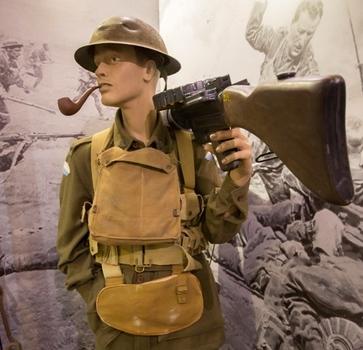
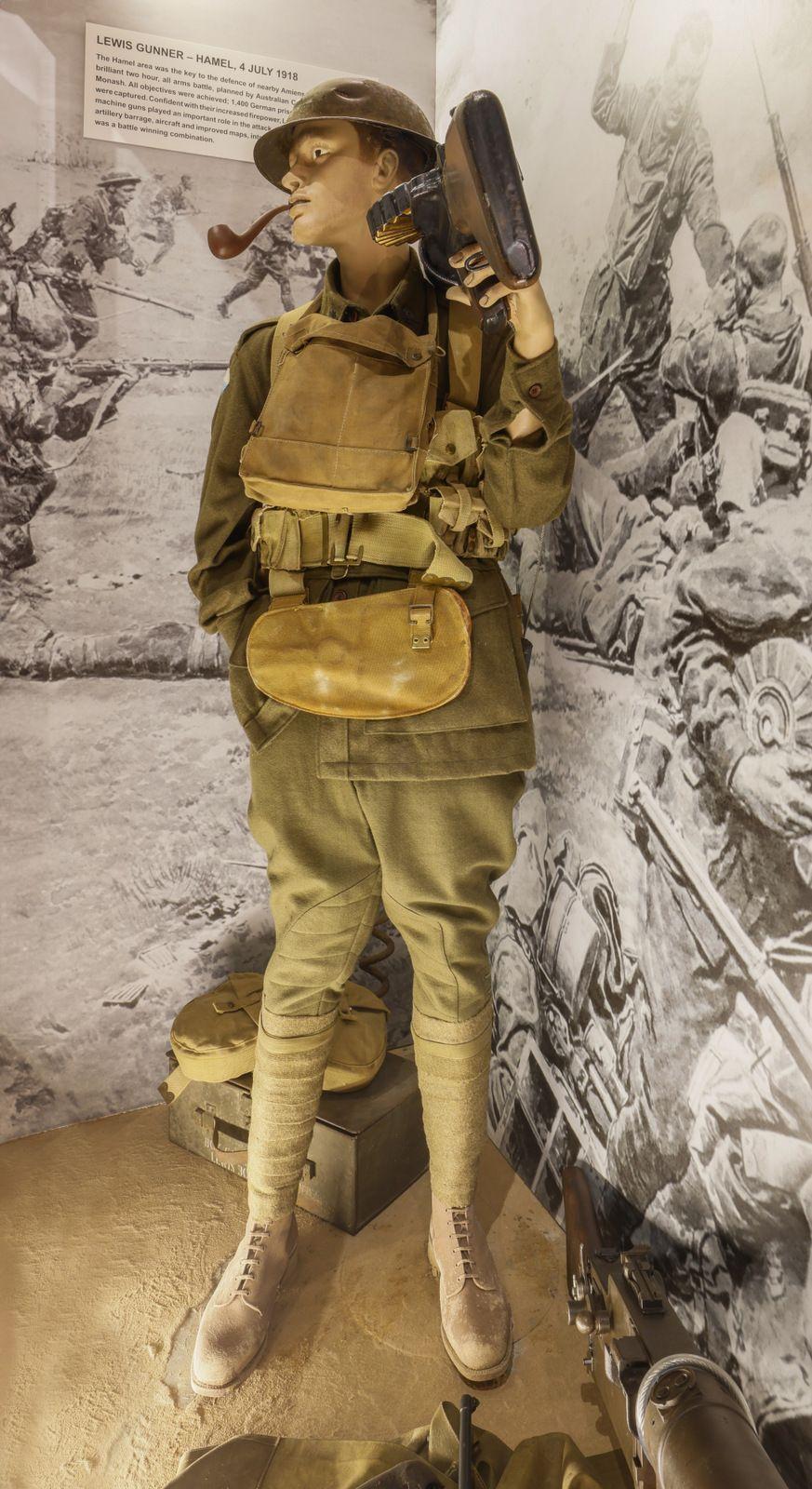
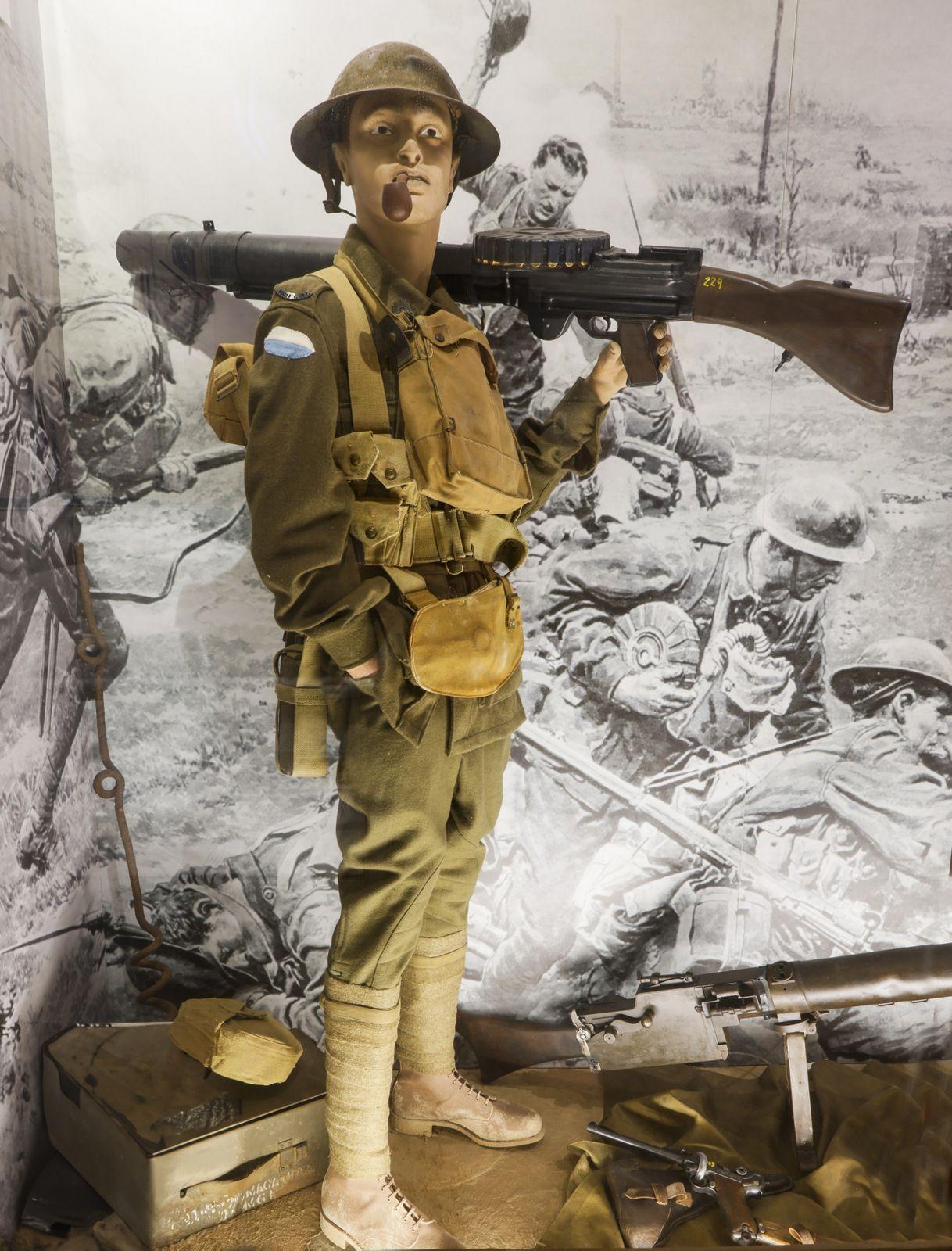
Scan this QR code to open this page on your phone ->

